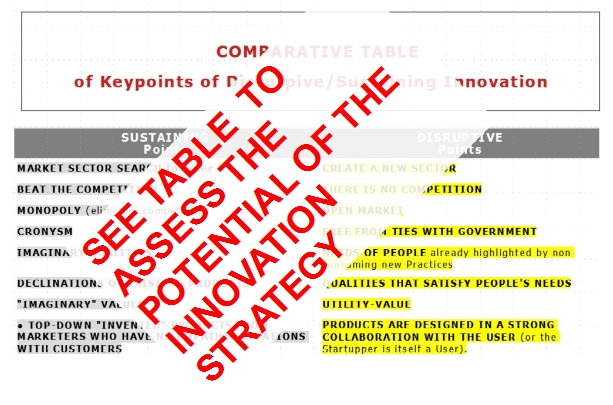MISSION / PURPOSE OF BUSINESS
In the functional market for disruption, some fundamental characteristics of the original Market are recovered (the one prior to the overturning of the Principles operated after the 60s by the Financial Market):
we shift from the current one
FINANCIAL DRIVEN BUSINESS,
to the
PORPOUSE DRIVEN BUSINESS.
.
The two types of Business, in a nutshell, consist of:
● Financial driven approach, in which the financial profit comes first of all (including product quality); and the focus is on the short-term strategies (and results).
● Purpose driven approach: the Market of the “Social impact” recovers Values and Principles of the “original” Market (prior to the turnover made by the financial system).
Basically the values of the traditional Society of Man return: the urge to interact with others with “community spirit”. Approach based on perception which is more gratifying (and effective) to satisfy problems in collaboration with others.
The new (but “original”) Business is therefore based on the ability to perceive – empathetically – the needs of others. And then on the recovery of the entrepreneur’s primary capacity (until now replaced by managers) to empathically tune into demand.
It underlines how this is the original business setting; that is the approach of the Business of the Craftsman of the past whose products represented, in part, an “affective” component (not strictly “economic”).
This is the Product component defined by many Sociologists as a “gift component” of the Product. “Without the gift cycle, our companies simply could not exist” Market and markets – Serge Latouche – 12/18/2005
It is to consider the different context in which this “business activity” developed. At that time most people lived in traditional “Villages”. In which:
1) from the Customers (who were the “extended family” of the Village) a form of profit was expected that was much more “subtle” than the current one (it must be considered that in any product the Craftsman “put his face”).
2) the “Economy” of the time was minimally based on money: at that time the exchange – at the base of any Market – was not mostly referable to money, since barter was in force – which in rural communities is based on now on performance and not on objects. And barter offers important “intangible” advantages.
In this context everyone was gratified by the perception of being important for the proper functioning of the social community.
.
Today we talk about a Missionary business, in which profit becomes almost a by-product of this drive to satisfy people’s needs (paradoxically, in the Disruptive Innovation Market, focusing on profit brings lower profits compared to new strategies that give priority to to product quality <see Towards a new (real) sustainability: the mistake of focusing on the low price>)..
The new Business is based on the qualities of the so-called Social Impact: of the Sharing ecomony, of the “Compassionate Communities”. (features that are the basis of the businesses that changed the market – from Yahoo! to Airbnb).
<see ‘The New Wave of crowd-trends: an introduction to Social trends INNOVA’>
One of the problems of the current market is replacing the natural impulses to the socialization of man with an ideological dogma <vedi ‘The misunderstanding on the Social Impact’ and Disruptive innovation: religion, scam or necessity for those who want to stay in the market? >


